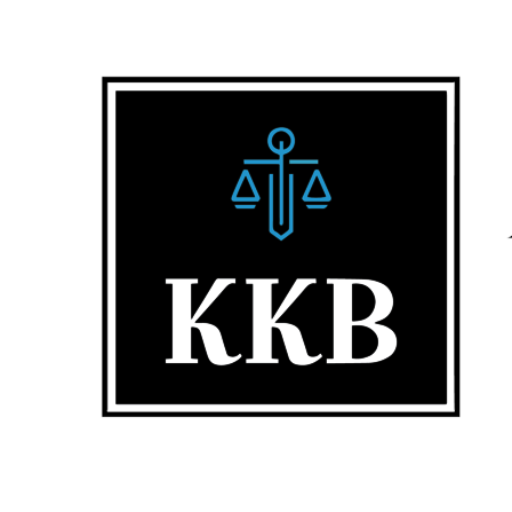Introduction
The emergence of financial technology (fintech) has revolutionized the financial sector in Tanzania, offering innovative solutions that drive financial inclusion, economic growth, and technological advancement. However, the interplay between law and fintech is crucial in ensuring sustainable growth. This article explores the opportunities and challenges within the legal landscape and proposes a path forward for fostering fintech growth in Tanzania.
Opportunities for Fintech Growth in Tanzania
Tanzania, with its dynamic economy and a rapidly growing digital landscape, presents a wealth of opportunities for the fintech sector. As one of East Africa’s most promising emerging markets, the country is experiencing an increase in mobile connectivity, internet penetration, and a young, tech-savvy population. These factors create fertile ground for innovation in financial technology, particularly in areas such as mobile payments, digital banking, insurance, and lending.
This section explores the key opportunities available within Tanzania’s fintech ecosystem, examining the regulatory framework, the rise of digital financial services, and the role of emerging technologies in driving financial inclusion and economic growth. The following are the opportunities for fintech growth in Tanzania:-
1. Promoting Financial Inclusion
Fintech platforms like M-Pesa, TigoPesa, and Airtel Money have transformed access to financial services in underserved populations. The National Payment Systems Act, 2015 provides a robust legal foundation for these mobile financial services, ensuring their stability and growth.
2. Driving Economic Growth
Fintech fuels economic activities through cashless transactions, e-commerce, and expanded credit access. Laws like the Electronic Transactions Act, 2015 support secure online transactions, which in turn attract investment into digital finance platforms.
3. Regulatory Innovations
The Bank of Tanzania (BoT) has pioneered regulatory frameworks, including the Financial Institutions (Microfinance) Regulations, 2019, and the Payment Systems (Licensing and Approval) Regulations, 2021. These regulations enhance consumer protection while encouraging market order and innovation.
4. Enabling Cross-Border Payments
Initiatives such as the East African Payment System (EAPS) and harmonized East African Community (EAC) laws open doors for fintech players to expand their services regionally, facilitating seamless cross-border transactions.
Challenges in the Legal Framework
Despite a promising fintech ecosystem, Tanzania faces significant challenges in its legal and regulatory framework. These include:
1. Regulatory Fragmentation
Overlapping jurisdictions between the BoT, Tanzania Communications Regulatory Authority (TCRA), and Tanzania Revenue Authority (TRA) create compliance challenges for fintech firms.
2. Data Protection and Cybersecurity
Although the Cybercrimes Act, 2015 addresses cyber threats, Tanzania lacks comprehensive data protection laws, which undermines user trust in sharing personal and financial information on fintech platforms.
3. Limited Access to Capital
Existing laws, such as the Capital Markets and Securities Act, Cap. 79, do not adequately support fintech startups in accessing venture capital and private equity.
4. Outdated Legislation
Laws like the Banking and Financial Institutions Act, 2006 are not designed to accommodate innovations such as blockchain, cryptocurrencies, and AI in financial services, creating regulatory uncertainty.
5. Consumer Protection Gaps
While general safeguards exist under the Fair Competition Commission (FCC) and the Consumer Protection Act, 2011, fintech-specific consumer protection measures are underdeveloped, leaving users vulnerable to fraud and unclear fees.
The Path Forward
Addressing these challenges is critical to unlocking the full potential of fintech in Tanzania. Below are actionable recommendations to shape a conducive environment for fintech growth:
1. Harmonizing Regulations
The government should establish a unified regulatory authority or framework to streamline oversight and approvals, reducing regulatory fragmentation.
2. Strengthening Data Protection Laws
Introducing comprehensive data protection legislation aligned with global standards like the EU General Data Protection Regulation (GDPR) will boost user trust and attract foreign investors.
3. Encouraging Innovation Through Sandboxing
The BoT could expand its Regulatory Sandbox Framework, introduced in 2021, to accommodate more fintech startups will enable controlled testing of innovations, fostering growth without penalties for non-compliance.
4. Developing Crypto and Blockchain Regulations
Clear guidelines for cryptocurrencies and blockchain technology will enhance transparency, reduce transaction costs, and facilitate the adoption of cutting-edge financial solutions.
5. Capacity Building for Regulators
Training programs for the BoT, TCRA, and TRA will ensure regulators remain proactive in addressing emerging fintech trends and challenges.
6. Improving Access to Capital
Revising laws or introducing incentives, such as tax breaks for fintech investors, can attract venture capital and private equity to the sector.
7. Enhancing Consumer Awareness and Protection
Mandatory disclosure of fintech terms, risks, and fees, coupled with government-led awareness campaigns, will empower users and enhance consumer protection.
Conclusion
The legal framework plays a pivotal role in shaping the trajectory of fintech growth in Tanzania. While current laws provide a foundation, addressing gaps and aligning regulations with global best practices will unlock the sector’s full potential. A collaborative effort between the government, regulators, and industry stakeholders is essential to ensuring fintech drives financial inclusion, economic development, and technological innovation in Tanzania.


